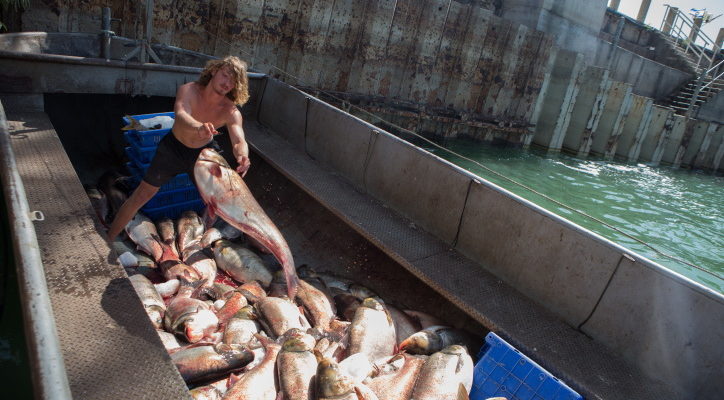Due to tar contamination from oil spill, fish from the Mediterranean will not be sold until further notice
By Paul Shindman, World Israel News
Israel’s health and agriculture ministries issued a ban on the sale of fish from the Mediterranean Sea in the wake of a disastrous oil spill last week that has killed wildlife and polluted Israel’s entire coastline, Channel 12 reported Wednesday.
Although no findings have been received so far indicating the danger posed by fish consumption, the Health Ministry decided as a precaution not to market fish from the Mediterranean.
The order bans the marketing of edible fish caught off the Mediterranean coast, but the proclamation is valid only from the time it was issued, meaning any fish caught in recent days can still be sold.
The ministry statement does not warn the public about consuming fish that was caught in the time since the oil spill, that was discovered last week as globs of sticky tar started washing up on Israel’s beaches from Ashkelon in the south all the way up to the Lebanese border. A huge dead whale on the beach was determined to have been poisoned by the spill along with fish, birds and turtles.
In response to the ban, the Israel Fish Breeders Association announced that they are preparing to double the supply of pond fish to the market. Those fish are grown inland in spring water ponds that are closed systems away from the Mediterranean.
“The growers were prepared, as every year, to supply the expected demand for the Passover period,” said association CEO Eli Sharir. The Passover holiday begins at the end of March when millions of families meet for a traditional large meal.
“Following the announcement from the Ministry of Health, we are significantly shifting gears and working to double the quantities to ensure that every home in Israel can enjoy, in the coming weeks and holidays, fresh Israeli fish without fear,” Sharir said.
Fish samples from the Mediterranean were sent to the laboratories of the Ministry of Agriculture to rule out the presence of any contaminants. Results are expected in the coming days after which further instructions will be given, the report said.




